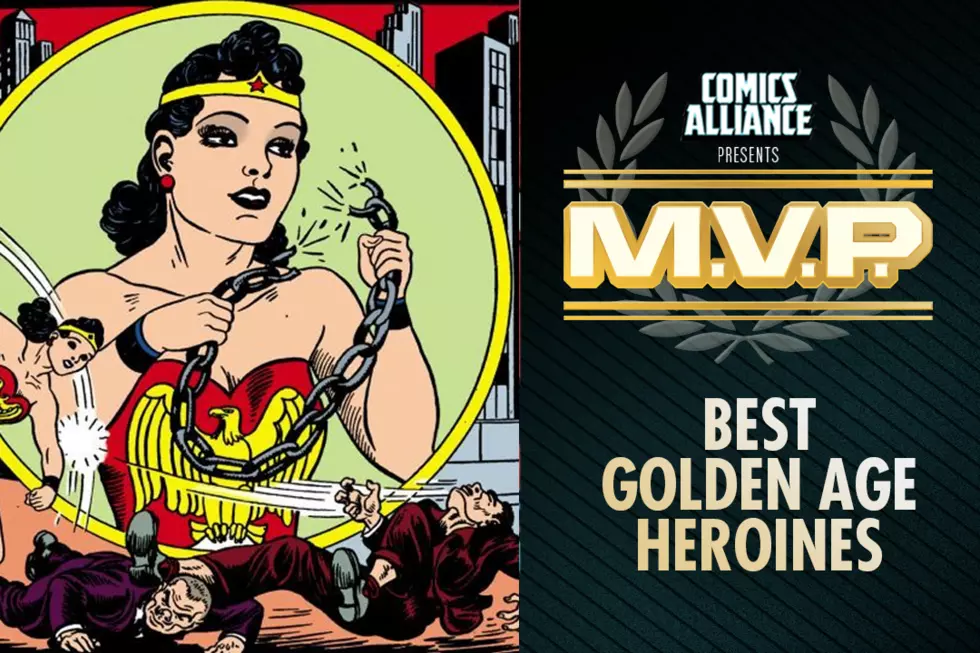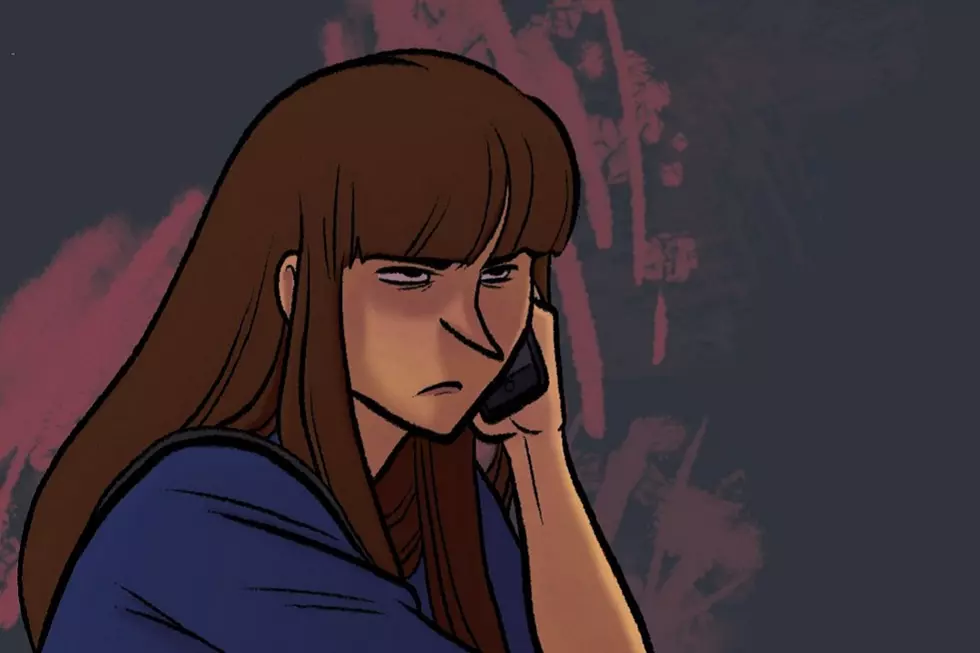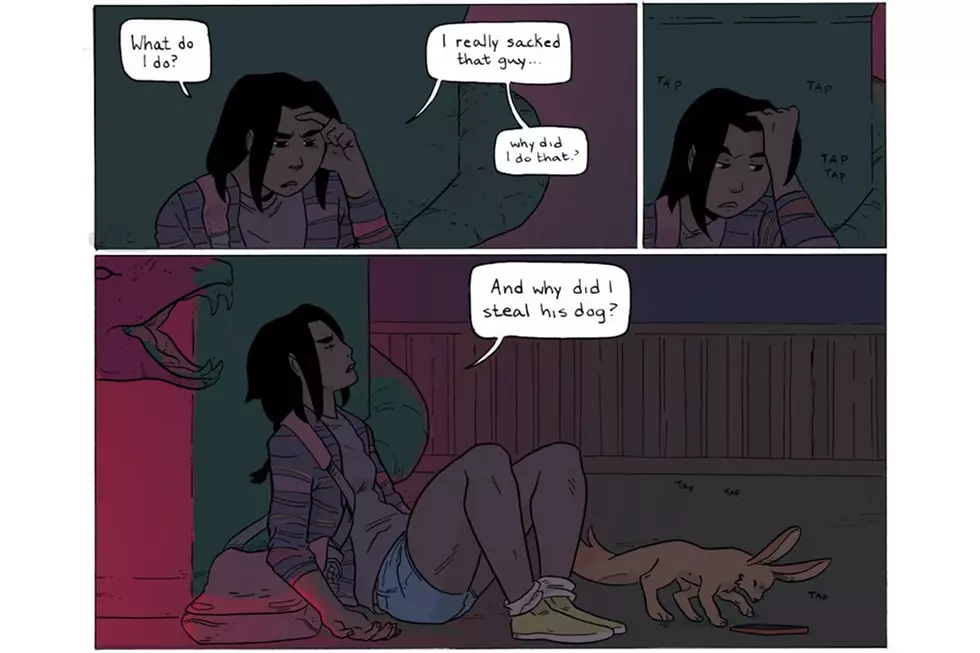
Creating A Space to Strengthen the Community: VanCAF’s Andrea Demonakos on Cons, Creators, and Fans
Andrea Demonakos is one of the many women in comics whose hard work is never properly appreciated. Working as an organizer and coordinator at Emerald City Comicon, then ReedPOP, and named last year as the new festival director for the Vancouver Comic Arts Festival, Demonakos is an integral figure in the comics convention and festival scene, and that gives her a great perspective on the comics community.
ComicsAlliance reached out to Demonakos post-ECCC to find out more about what it takes to run a comic con, why comic conventions are so important for creators, and what advice she has for first-time attendees.
ComicsAlliance: How did you get involved in comics? Were you a reader before you became a comic con organizer?
Andrea Demonakos: I've been a fan of comics for as long as I can remember, and my comics addiction has gone through different stages over the last 20+ years. It started with Archie Comics from the library, then spending my lunch money on issues of Wolverine and Spider-Man, then graduating to indie comics, webcomics, manga, and graphic novels, and working at a comic shop to finance my addiction.
The road to my now professional comics-adjacent career started when I became friends with local Toronto comics folks by bringing them food at conventions and generally being a nice person, I guess? I used to work in journalism, and there's a surprising number of crossovers between the comics and journalism community, so that gave me more opportunities to get involved. When I moved to the west coast, I interned at Oni Press in Portland, which helped me transition into a job with a webcomics company, and then eventually Emerald City Comicon, and now the Vancouver Comic Arts Festival.
CA: How do you go about choosing what comic artists to invite, either as featured guests or Artists Alley participants?
AD: Well that's definitely determined by your budget, and how much money you can spend on guests who require travel expenses or appearance fees. After that, it's about knowing what's going on in the comics industry, keeping up to date on publishers' new releases and popular new talent.
You're trying to maintain a balance between people who have dedicated audiences and have been creating good work consistently for years, and whatever the newest trends are, and the creators who are fueling them. Keeping an eye on other shows' guest lists, the monthly Previews catalogue, and comics Twitter are good places to start. The rest is a specific alchemy.
CA: You've worked on very large comic cons like Emerald City Comicon, and you're currently organizing a smaller festival, VanCAF. Are there any lessons that can be applied across cons of wildly different sizes?
AD: The biggest lesson I've found working for ECCC and VanCAF, and visiting what feels like almost every show in North America over the years, is that you've got to be supportive of your community. If attendees are excited and happy, they'll bring that energy to the show. The same applies to exhibitors; if you treat them with respect, and give them great opportunities to sell their products, they'll leave happy, and tell their friends.
For me it's not so much about attendance size or budget, it's more about creating a space where people who read comics can meet people who make comics, and hopefully strengthen the existing comics community.
CA: How important are conventions to the comic industry?
AD: Comic festivals and conventions are incredibly important opportunities for creators. A lot of comic creators work from home, or in small studios, so it can be hard to feel like you're part of a community, or that people actually care about what you're creating. Shows are a chance for creators and publishers to sell their comics to fans face-to-face, meet the people who love their work, as well as take advantage of the opportunity to meet potential collaborators, publishers, and friends in person.
On the other side of the table, comic events are wonderful opportunities for fans to discover new material. No matter what kind of comics a fan is into, they'll be able to find something new to read by being open minded and exploring the offerings that creators and publishers have.
Shows are also a strong resource for publishers when it comes to finding new talent. All you have to do is visit shows like TCAF or HeroesCon, and you can discover the creators who will be making headlines the following year.
CA: What kind of programming do you like to see at a comic con?
AD: I like programming that covers something new, or presents new viewpoints on established content or opinions. From ECCC last month, I loved the "metaphysics of comics" and "degrees of blackness" panels. I don't often get the chance to attend panels, because I'm either wandering Artist Alley spending too much money, or working behind the scenes, so there's got to be a new idea to get me into a panel room.
CA: Do you have any advice for first time con-goers?
AD: Oh gosh, of course! Do your research: Which creators do you want to see? Are there signing times? Know your limits: How much money can you safely spend? Do you get overwhelmed in crowds? Be nice to everyone! Exhibitors are there to make money to support themselves, and show staff are probably running on little to no sleep.
And make sure to take care of yourself, otherwise you'll never make it through the best weekend ever!
VanCAF takes place May 20 and 21 in Vancouver, Canada, at the Roundhouse Community Arts & Recreation Centre. For more information check out the VanCAF website or follow the Twitter account. For more about Andrea Demonakos, check out her Twitter.
More From ComicsAlliance
![When Everything Is Pink, Nothing Is Pink: Sarah Stern On Color And Creativity [Interview]](http://townsquare.media/site/622/files/2017/03/Cindersong-feat.jpg?w=980&q=75)







![Talking Body: Kat Verhoeven’s Dishes on ‘Meat & Bone’ [Webcomic Q&A]](http://townsquare.media/site/622/files/2017/01/header-a.jpg?w=980&q=75)
